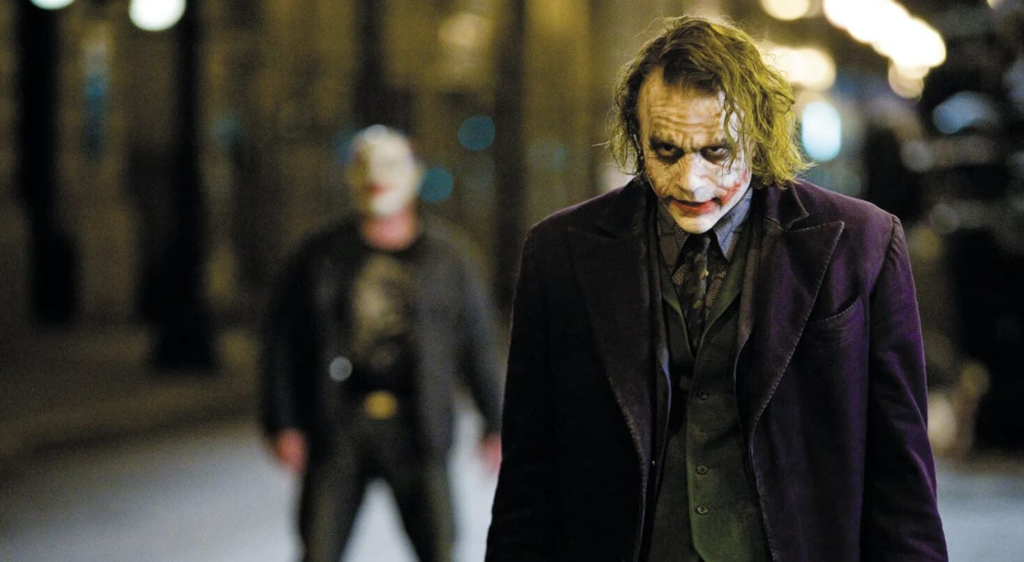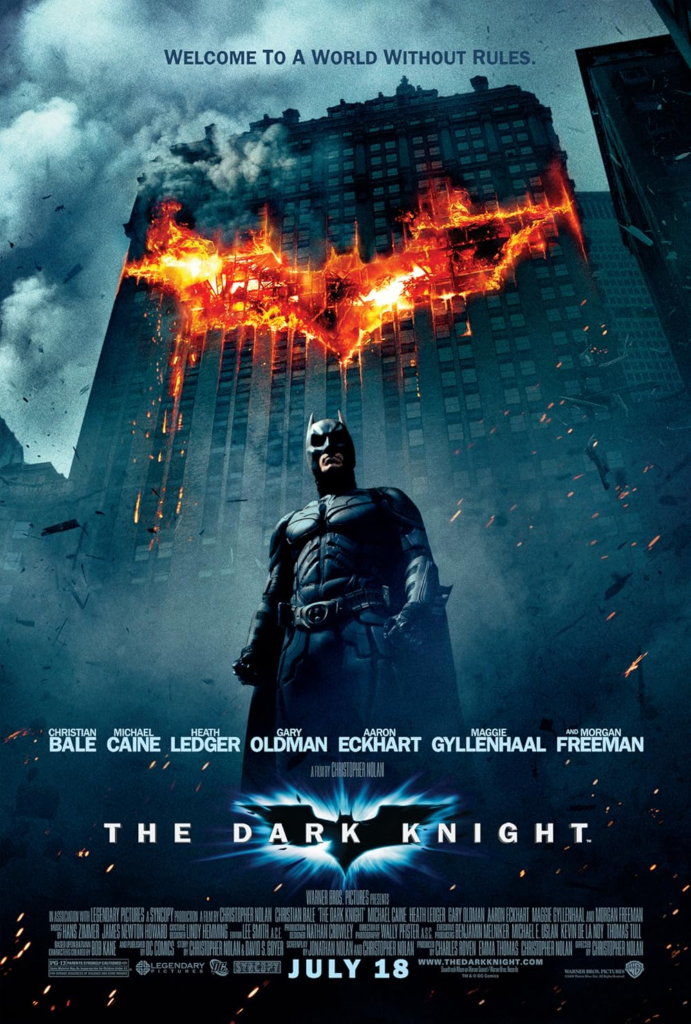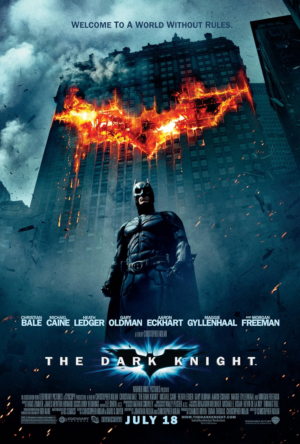Directed by Christopher Nolan, The Dark Knight is a masterful blend of action, drama, and moral complexity. Released in 2008, this second installment in Nolan’s Batman trilogy transcends the superhero genre, delivering a gritty, thought-provoking crime thriller anchored by one of the most iconic performances in cinematic history.
Plot Overview

In Gotham City, Batman (Christian Bale), Lieutenant Jim Gordon (Gary Oldman), and District Attorney Harvey Dent (Aaron Eckhart) form an alliance to dismantle organized crime. However, their efforts are upended by the emergence of the Joker (Heath Ledger), a sadistic anarchist whose chaotic schemes force Batman to confront his own moral limits and the consequences of his vigilantism.
Strengths

1. Heath Ledger’s Legendary Joker
Ledger’s Joker is a tour de force, a chilling embodiment of chaos and unpredictability. His performance is mesmerizing, balancing dark humor, menace, and philosophical depth. Lines like “Why so serious?” and “You complete me” are delivered with an intensity that leaves a lasting impact. Ledger’s portrayal earned him a posthumous Academy Award for Best Supporting Actor, and deservedly so.

2. Complex Characters and Themes
- Batman/Bruce Wayne: Christian Bale delivers a nuanced performance, portraying a conflicted hero burdened by the weight of his dual identity. The film delves into Bruce’s struggle to define justice and maintain his moral code in the face of escalating threats.
- Harvey Dent/Two-Face: Aaron Eckhart excels in showing Dent’s transformation from an idealistic prosecutor into the tragic, vengeful Two-Face. His arc underscores the film’s exploration of morality, chance, and the corrupting nature of power.
- The Joker: More than a villain, the Joker is an agent of chaos, testing Gotham’s moral fabric and Batman’s resolve at every turn.
3. Moral Complexity
Nolan’s script, co-written with his brother Jonathan Nolan, weaves complex themes of order versus chaos, justice versus vengeance, and the cost of heroism. The film poses difficult questions about morality, often leaving the audience to grapple with the answers.
4. Impeccable Action and Cinematography
The action sequences are meticulously crafted, with highlights including the iconic bank heist opening and the explosive truck chase through Gotham’s streets. Wally Pfister’s cinematography captures the grit and grandeur of the city, while Hans Zimmer and James Newton Howard’s score heightens the tension with its pulsating intensity.
5. A Grounded, Realistic Tone
Unlike many superhero films, The Dark Knight opts for realism. Gotham feels like a living, breathing city, and the stakes are deeply personal, making every moment resonate.
Weaknesses

The film’s ambition occasionally leads to pacing issues, particularly in the third act. Some viewers might find the rapid escalation of events—particularly Harvey Dent’s transformation—a bit rushed. However, these are minor blemishes in an otherwise outstanding film.
Legacy
The Dark Knight changed the landscape of superhero cinema, proving that the genre could tackle serious themes and deliver Oscar-worthy performances. Its success influenced a wave of darker, more grounded superhero films and solidified Christopher Nolan as one of the most influential directors of his generation.
Verdict
The Dark Knight is more than just a superhero movie; it’s a cinematic triumph that combines thrilling action, profound themes, and unforgettable performances. Heath Ledger’s Joker is an enduring cultural icon, and the film remains a benchmark for the genre.
Rating: 10/10


Leave a Reply